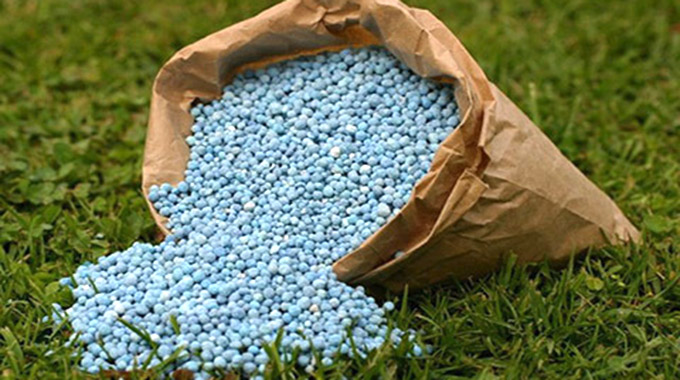
Ellen Chasokela Herald Reporter
Fertiliser producers yesterday said there will be no need for imports in the forthcoming 2019-2020 summer cropping season because they have enough stocks.
The firms said while they were grappling with foreign currency challenges, they had collaborated with financial institutions to mobilise adequate resources to ensure the season was a success.
Representatives of fertiliser manufacturers said this yesterday while giving oral evidence before the Parliamentary Portfolio Committee on Lands, Agriculture, Water, Climate and Rural Resettlement chaired by Gokwe Nembudziya legislator Cde Justice Mayor Wadyajena that sought to establish their level of preparedness.
Sable Chemical Industries (Ltd) chief executive officer Mr Bothwell Nyajeka said his company was ready for the season.
“Sable is the sole manufacturer of ammonium nitrate (AN) fertiliser in Zimbabwe,” he said. “AN is a source of nitrogen, the most important nutrient required in the growth of crops such as maize, cotton, tobacco and wheat.
“Sable has the plant, capacity, and a team of 300 experienced people to produce a quality product for the country. We also mobilised letter-of-credit facilities with our bankers. The only thing that we do not have is timeous access to foreign currency to import our major raw material, ammonia gas.’’
Mr Nyajeka urged the Government and other players not to import fertiliser, but instead buy the product from his firm as a deliberate measure to support local industry.
He said there was no reason to import fertiliser since Sable Chemicals products were equally competitive.
Zimbabwe Fertiliser Company (ZFC) managing director Dr Richard Dafana said his firm required $24 million to unlock raw materials under “collateral management”.
“Right now we have stock of 25 000 tonnes of basal fertilisers, 4 000 of higher analysis basal fertiliser and 30 000 of top dressing fertilisers, so we are close to 60 000,” he said.
“Already, in the factory, this material is in two parts; part of it is our own material that we have already started to supply and the other part is material that is under collateral management (CMA). CMA is material that we have produced, we have put some of the raw materials in and part of the raw materials is supplied by our partners, so we have to pay foreign currency before we get access to that raw material.
“We have started delivering fertiliser to the CBZ yield scheme and by December we will have produced 123 000 tonnes of basal fertiliser and 53 000 tonnes of top dressing.”
Fertiliser Seed Grain (FSG) managing director Mr Steve Morland said they were ready and had already delivered inputs to the Presidential Inputs Scheme.
“We have started delivering fertilisers to the Presidential Inputs Scheme which are for maize and cotton and we are quite comfortable with the numbers this season. The required tonnes between the two programmes is 172 000 tonnes and so far 22 000 tonnes have been delivered.
“Current deliveries are 600 tonnes – 900 tonnes per day at our Bindura plant depending on the released raw materials on hand. We have over 70 000 tonnes of raw materials in the country, which is currently under CMA. We also have high analysis fertiliser stock available for the commercial farmers, but we need to get some nostro allocations to get this released into free circulation.’’
Windmill Private Limited chief executive, Mr George Rundogo, said the Government schemes had remained the major driver of their business.
“Outside Government schemes, there is no business,” he said. “So, if you do not get one of the Government projects then you are out of the game.”
The Meteorologcial Services Department has said the first half of the season will receive normal rains with a bias towards above normal, while the second half will receive normal rains with a bias towards below normal.
